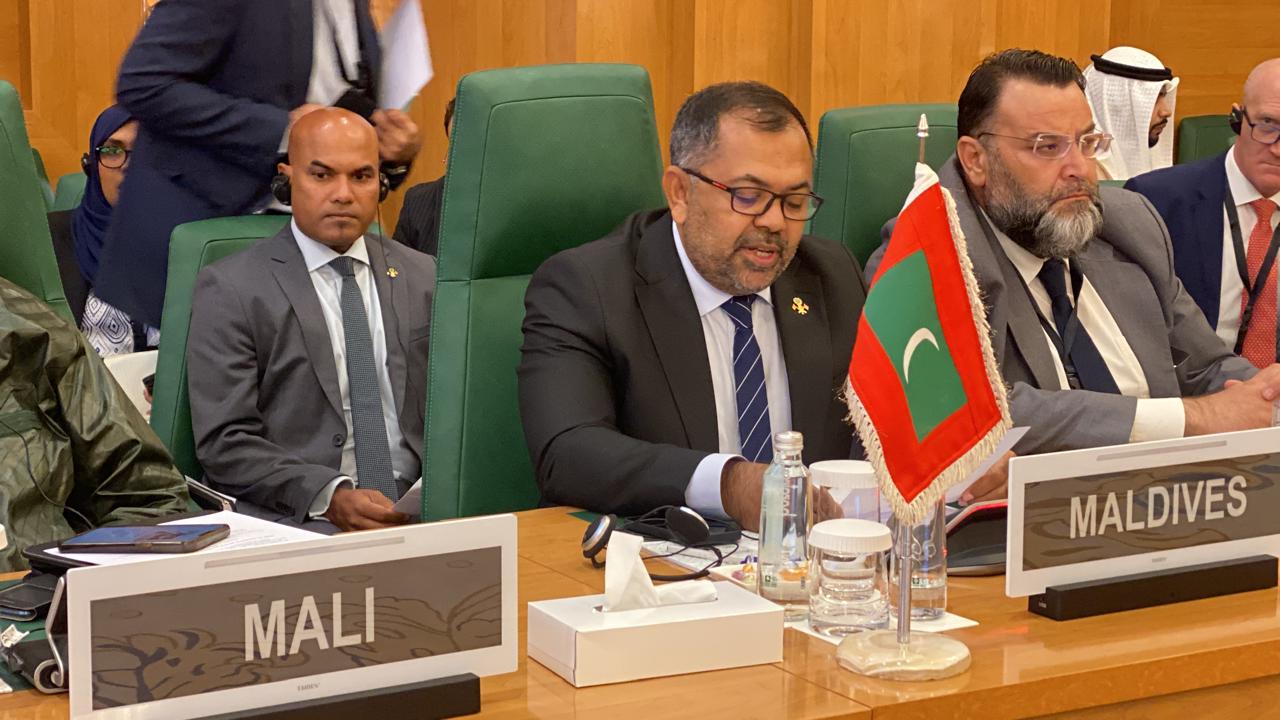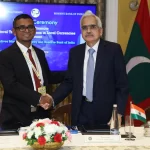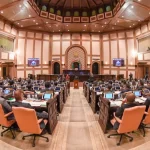In a speech that resonated with a tone of unwavering commitment and moral clarity, Foreign Minister Moosa Zameer addressed the OIC Executive Committee, underscoring the nation’s steadfast support for Palestine. The Minister’s words were direct, passionate, and indicative of the Maldives’ growing role on the international stage in defending Palestinian rights.
Minister Zameer did not mince words when describing the ongoing violence in Gaza. He referred to it as nothing short of a “genocidal act,” a term that leaves little room for ambiguity. The choice of such strong language is telling; it highlights the frustration and deep concern that the Maldives, a small island nation with a big voice in the diplomatic arena, feels towards the prolonged conflict.
“Ten months on, and Israeli forces continue with its genocidal acts in Gaza,” he stated, stressing the severe humanitarian crisis that has resulted in countless deaths, widespread destruction, and the displacement of numerous Palestinians.
“The situation on the ground is nowhere near where it should be,” Zameer emphasized, painting a grim picture of the escalating violence and humanitarian crisis. His speech captured the gravity of the situation, with countless deaths and the suffering of displaced populations echoing in every word.
But Zameer’s address went beyond condemnation. He reminded the international community of its responsibility to hold Israel accountable under international law. This was not merely a rhetorical flourish; it was a call to action, one that the Maldives is backing up with concrete steps.
The Maldives has not only submitted a written statement but also delivered an oral submission before the International Court of Justice (ICJ), supporting the UNGA resolution on the legal consequences of Israel’s occupation of Palestinian territories. Additionally, the Maldives intends to file a declaration of intervention in South Africa’s case against Israel. These are not actions of a nation content with symbolic gestures; they are the moves of a country committed to making a tangible impact on the international stage.
The ICJ’s advisory opinion, which declared Israel’s occupation of Palestinian territories illegal under international law, has been a cornerstone of the Maldives’ diplomatic efforts. Although the ruling is non-binding, it carries significant moral and legal weight. The ICJ concluded that Israel’s occupation has systematically discriminated against Palestinians, amounting to racial segregation and apartheid. The court further held that Israel must evacuate all settlements in the West Bank and East Jerusalem and compensate Palestinians for damages caused during the occupation.
This ruling, much like those involving Namibia, Western Sahara, and East Timor, places Israel’s actions in a broader context of historical injustices addressed by international law. It’s a ruling that civil society and international organizations will likely leverage to further their calls for accountability and justice.
The Maldives’ proactive stance at the ICJ aligns with its longstanding support for Palestinian statehood. Minister Zameer reaffirmed the country’s commitment to a two-state solution, advocating for the establishment of an independent and sovereign Palestine based on pre-1967 borders with East Jerusalem as its capital. “This can only be a reality through dialogue, compromise, and cooperation,” he noted.
“We will continue to follow and actively engage in these cases in support of Palestine,” Zameer stated, affirming the Maldives’ long-standing commitment to the Palestinian cause. His words reflect a deep-seated belief that peace in the Middle East is not just a regional issue but a matter of global importance.
In his closing remarks, Minister Zameer called for an immediate and permanent humanitarian ceasefire, highlighting the urgent need for humanitarian aid to reach those suffering in Gaza. “Incremental progress of aid to Gaza is no longer enough,” he said, underscoring the need for a more robust and sustained international response.
Zameer’s appeal was not just for the sake of Palestine but for the very principles of justice and human rights that the Maldives holds dear. The country’s stance on Palestine reflects its broader commitment to upholding international law and supporting oppressed peoples around the world.
Zameer also touched on the spiritual and moral underpinnings of the Maldives’ foreign policy, reminding the OIC of the shared values that unite the Ummah. “Our source of strength comes from our faith, which promotes peace, unity, and coexistence,” he said. This was not just a rhetorical nod to religious sentiment; it was a reaffirmation of the ideals that guide the Maldives’ approach to global diplomacy.
As the Maldives continues to navigate its role in international affairs, its actions at the ICJ and its unwavering support for Palestine serve as a testament to its commitment to justice and peace. The country’s voice, though small in size, is increasingly resonant on the global stage, advocating for the rights of those who have been oppressed for far too long.












